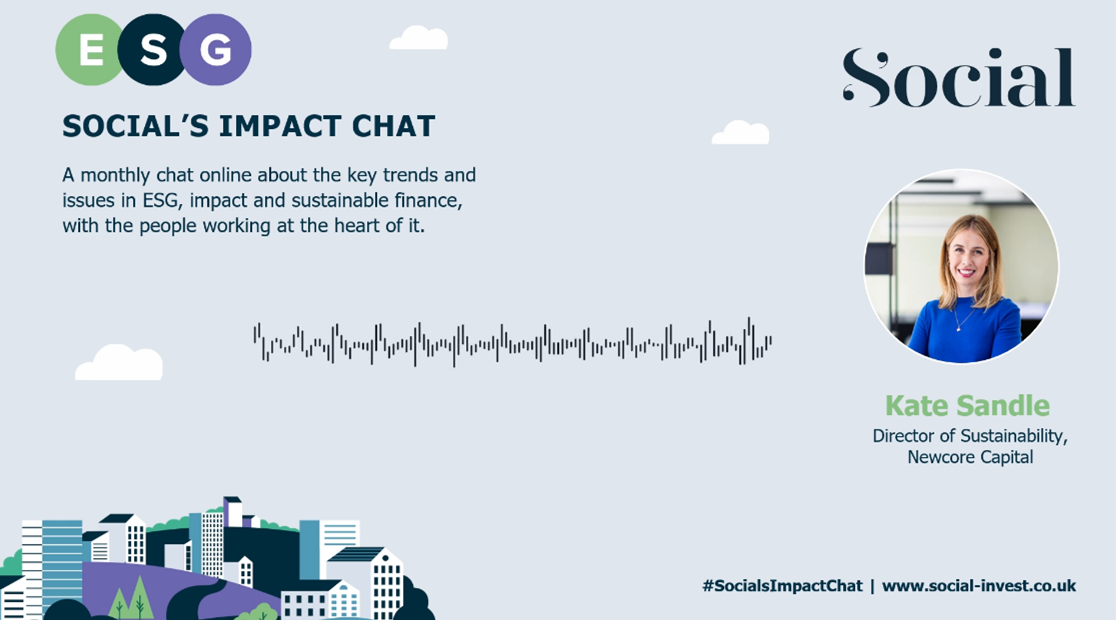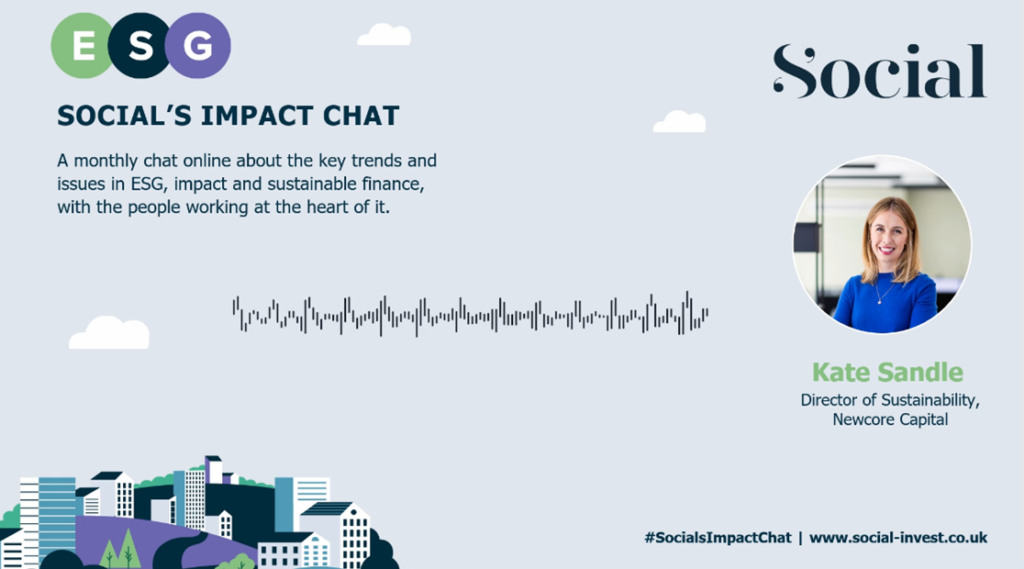In our latest Impact Chat, Social Invest Account Manager, Nishall Garala, speaks to Kate Sandle, Director of Sustainability at Newcore Capital. In her role Kate is responsible for driving the business’ sustainability efforts including assessing impact of its investments.
Below are some of the key talking points discussed in the webinar:
Using a spectrum to assess impact
Kate explains that Newcore rates investments based on a spectrum of impact.
The spectrum attempts to define whether the investment ‘does; harm, ‘avoids harm’, ‘benefits stakeholders’ or ‘contributes to solutions’.
Within this, Kate explains “we generally aim for 70%-80% of our assets to sit within the B and the C categories, so ‘benefits stakeholders’ and ‘contributes to solutions’.”
The remainder of Newcore’s assets then sit in the ‘avoids harm’ category.
Defining between ESG, sustainability and impact
Kate is quick to clarify that Newcore is a sustainable investor rather than an impact investor and much of her work is transitioning assets to ones that create impact.
She says: “One of the most important things to call out is the difference between ESG, sustainability and impact. When we are talking about impact, we are talking about outcomes. So we are looking at what we could put in, what does that deliver and then what does that relate to?”
Kate says that Newcore has worked with The Good Economy to develop a ‘theory of change’ which aims to assess the impact of Newcore’s investments.
Community demand should drive decisions
Kate discusses the need to “think outside the box” when it comes to transitioning assets.
She gives and example of how Newcore bought a disused doctor’s office and turned it into a children’s nursery to suit the needs of the local community.
Kate notes that community demand is the most important factor when transitioning an asset.
“The only way an asset is going to be successful is if there’s demand.”
Importance of framing the narrative around impact correctly
Kate explains that part of her reason for moving from non-profit work to the investment industry was a recognition that the economic system needs to change.
She notes that a system where “shareholder primacy reins supreme” is an “imperfect way of thinking about impact” but that is the system we have.
To manage this, Kate says, it is important to get the narrative around impact right and creating “a narrative and a way of identifying assets that enables you to translate that into something that people might understand.”.
Corporates and climate emergencies
Kate goes on to talk about and initiative which she co-founded in 2019 separate to her work for Newcore, called Business Declares.
The organisation encourages businesses to declare a climate emergency and has since “formed int a network of organisations and businesses that want to do more” she says.
The network has been working to get more businesses to join them in calling for greater investment in renewable energy and to end new fossil fuel licensing.



